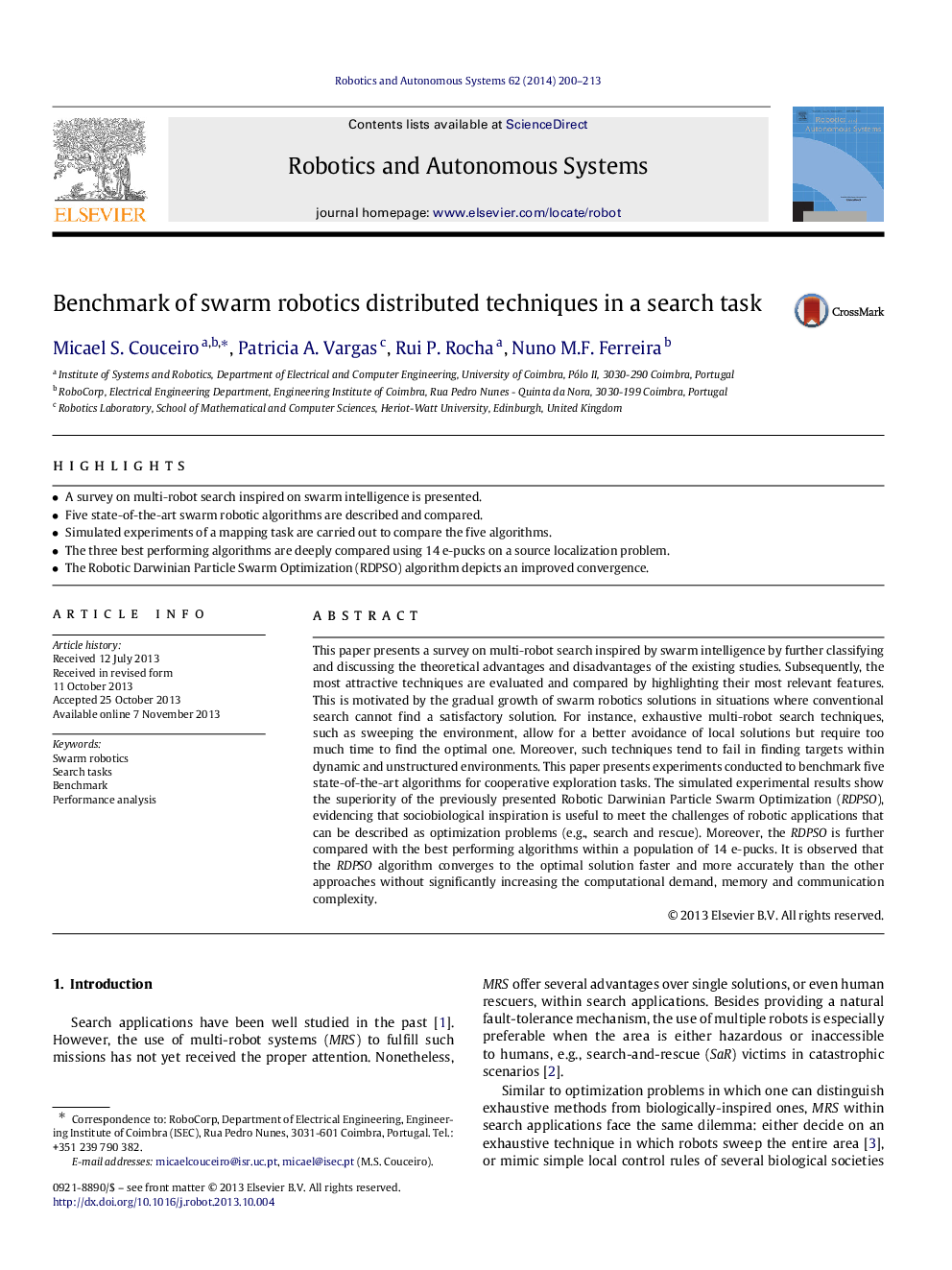| Article ID | Journal | Published Year | Pages | File Type |
|---|---|---|---|---|
| 411321 | Robotics and Autonomous Systems | 2014 | 14 Pages |
•A survey on multi-robot search inspired on swarm intelligence is presented.•Five state-of-the-art swarm robotic algorithms are described and compared.•Simulated experiments of a mapping task are carried out to compare the five algorithms.•The three best performing algorithms are deeply compared using 14 e-pucks on a source localization problem.•The Robotic Darwinian Particle Swarm Optimization (RDPSO) algorithm depicts an improved convergence.
This paper presents a survey on multi-robot search inspired by swarm intelligence by further classifying and discussing the theoretical advantages and disadvantages of the existing studies. Subsequently, the most attractive techniques are evaluated and compared by highlighting their most relevant features. This is motivated by the gradual growth of swarm robotics solutions in situations where conventional search cannot find a satisfactory solution. For instance, exhaustive multi-robot search techniques, such as sweeping the environment, allow for a better avoidance of local solutions but require too much time to find the optimal one. Moreover, such techniques tend to fail in finding targets within dynamic and unstructured environments. This paper presents experiments conducted to benchmark five state-of-the-art algorithms for cooperative exploration tasks. The simulated experimental results show the superiority of the previously presented Robotic Darwinian Particle Swarm Optimization (RDPSO), evidencing that sociobiological inspiration is useful to meet the challenges of robotic applications that can be described as optimization problems (e.g., search and rescue). Moreover, the RDPSO is further compared with the best performing algorithms within a population of 14 e-pucks. It is observed that the RDPSO algorithm converges to the optimal solution faster and more accurately than the other approaches without significantly increasing the computational demand, memory and communication complexity.
